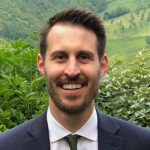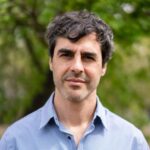A number of recent Ph.D. students who received funding from the Stone Center or worked closely with Stone Center Senior Scholars are starting postdoctoral fellowships and tenure-track positions, where they plan to continue their research on socio-economic inequality. Here’s an update on graduates who recently earned their doctoral degrees in Sociology:
Lorraine Torres Colón, who was a Reducing Inequality Network (RIN) Scholar and whose dissertation committee was chaired by Stone Center Associate Director Leslie McCall, has started a position as a Latino Social Science Postdoctoral Fellow at the University of California, Berkeley. There, she will continue her work on the gendered psycho-social, physical, and socio-economic consequences of coloniality and colonial divestment for Latinxs in the U.S. and in non-sovereign territories controlled by the U.S. Currently she is preparing an article for publication that explores how geographies of colonial divestments relate to differential risks of experiencing gendered violence in Puerto Rico.
“My time at the Stone Center allowed me to think through and collaborate with folks on issues of inequality from different disciplinary and methodological perspectives,” Torres Colón says. “I’m feeling grateful to be able to continue in that tradition by joining a research center that celebrates intentional interdisciplinary collaboration as well.”
Edwin Grimsley, who was named a Stone Center Junior Scholar in 2022, received several tenure-track offers. He accepted a position at Baruch College’s Marxe School of Public and International Affairs, where he started as an assistant professor this fall. Before coming to the Graduate Center, Grimsley spent a decade working as senior case analyst for the Innocence Project, where he helped develop ways of using DNA testing to prove the innocence of people who had been wrongly convicted and incarcerated.
As a Stone Center Junior Scholar, Grimsley received funding for his research on the impact of marijuana policy in the U.S. “It’s always helpful to get money for research, and to travel to do the archival research, especially during COVID, when it was much more difficult,” Grimsley said. “It was also helpful to be around other scholars who were doing inequality work. It’s great to have that community, and to attend the weekly groups, seminars, and other presentations, and to hear other people’s work. The Graduate Center is a special place; the students specifically are radical, critical thinkers, and I think I couldn’t have done my work in any other Ph.D. program.”
Juliana de Castro Galvao also attended nearly all of the seminars that were part of the Multidisciplinary Seminar Series, hosted by the Stone Center’s Postdoctoral Scholars. During her time at the Graduate Center, she received a Stone Center scholarship to attend the LIS Introductory Summer Workshop. (The Stone Center is the U.S. Office of LIS, the cross-national data center based in Luxembourg). She recently moved to Oxford, where she is starting a three-year postdoctoral fellowship. “What I’m doing is interdisciplinary in nature,” says de Castro Galvao, who studies social stratification. “The Stone Center provides an environment where you’re in connection with people who are interested in studying inequality from many different disciplines — psychologists, economists, sociologists. It helped me think through what I wanted to do in my dissertation project.”
Janet Gornick, director of the Stone Center, chaired de Castro Galvao’s dissertation committee, and Leslie McCall served as one of the committee’s members. De Castro Galvao began her studies in inequality in her home country of Brazil and was accepted to several Ph.D. programs. “One of the reasons I chose the Graduate Center was because of the Stone Center,” she says. “I already knew a lot of the work of their scholars, and I thought it would be great to have the opportunity to work with them.”
Juan Cruz Ferre, whose dissertation committee also included Gornick, is starting a postdoctoral position at Princeton University’s Latin American Studies program. Following that, he will start a tenure-track position at Rowan University. Earlier this year, one of his articles, which was published in the International Journal of Social Welfare, was featured in LIS’s Inequality Matters newsletter. “Janet helped a lot as I figured out several technical issues and the conceptual framework for that work, which is basically one chapter of my dissertation,” he says.
Ferre worked as a medical doctor for six years in Argentina before earning a master’s degree at Johns Hopkins in public policy. As he moves forward, he intends to continue his work on understanding the changes that are necessary to improve social conditions. “So-called social determinants of health are very prominent, and it’s a good thing that people are paying more attention to those now,” he says. In Argentina, he says, “I would see the same families coming again and again to the hospital with conditions that were poverty-related, were related to problems in housing and nutrition. And that made me think that what we’re doing here is great, but the problem starts upstream.”
 Kasey Zapatka accepted a two-year postdoctoral scholar position in the Department of Sociology at the University of California, Berkeley, and the Institute of Governmental Studies. With David Harding, the department’s chair, he is co-teaching a year-long graduate methodological seminar on machine learning and causal inference in R and Python. Zapatka is also working on a grant project from the U.S. Department of Housing and Urban Development with Tim Thomas, also of Berkeley, to develop the first-ever longitudinal eviction database to evaluate household outcomes before and during the pandemic. The project aims to both paint a unique picture of what happens to households who have been evicted and to better understand the social and structural mechanisms that underpin eviction.
Kasey Zapatka accepted a two-year postdoctoral scholar position in the Department of Sociology at the University of California, Berkeley, and the Institute of Governmental Studies. With David Harding, the department’s chair, he is co-teaching a year-long graduate methodological seminar on machine learning and causal inference in R and Python. Zapatka is also working on a grant project from the U.S. Department of Housing and Urban Development with Tim Thomas, also of Berkeley, to develop the first-ever longitudinal eviction database to evaluate household outcomes before and during the pandemic. The project aims to both paint a unique picture of what happens to households who have been evicted and to better understand the social and structural mechanisms that underpin eviction.
“The Stone Center provided invaluable financial support to me at a critical time during my doctoral studies,” Zapatka says. “Leslie McCall, who was on my dissertation committee, really helped me connect my ideas to the wider inequality literature and connected me to other inequality scholars I might not have met otherwise.” As a Stone Center Junior Scholar, Zapatka attended some of the inaugural Reducing Inequality Network events, where he met other neighborhood inequality scholars in New York. “My research focuses on how space and place are important mechanisms of social and household stratification, so being connected to a community of scholars who are all focused on different aspects of inequality was helpful to place my work in a larger context,” he says. “I’m very grateful to the Stone Center for its support and the mentorship of Leslie and other connected scholars.”





